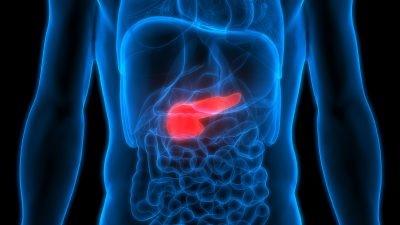Tumour microenvironment key in pancreatic immunotherapy

Led by researchers at the John Hopkins Kimmel Cancer Center, the latest study from an ongoing platform trial formed in 2015 to evaluate immunotherapy treatments before surgery (neoadjuvant) and after surgery (adjuvant) in patients with pancreatic cancer has found two major ‘defects’ in pancreatic cancer tumour microenvironments.
The 2015-begun platform trial is meant to enable researchers to use data generated by the trial to advance the development of immunotherapies for pancreatic cancer within the same trial, according to Dr Lei Zheng, co-director of the Pancreatic Cancer Precision Medicine Center of Excellence Program and professor of oncology at the John Hopkins University School of Medicine.
Zheng co-led a multidisciplinary team in the study – together with Dr Elizabeth Jaffee, professor of oncology and deputy director of the John Hopkins Kimmel Cancer Center, and Elana Fertig, PhD, associate professor of oncology and director of oncology quantitative sciences.
The team used banked biospecimens and studied the tissue, cellular, and molecular structure of the tumour microenvironment of pancreatic cancer by employing multi-omic strategies – exploring the genetic alterations (DNA), transcriptomes (RNA), and proteins expressed.
Pancreatic cancers tend to suppress the body’s immune response and prevent immune effector cells, such as T-cells, from killing the tumour cells, otherwise known as a ‘cold’ microenvironment.
Two forms of treatment known to stimulate the body’s T-cells to attack cancer cells, alone or in combination, were studied, including anti-PD-1 immunotherapy, which blocks an immune checkpoint that cancer cells use to turn off the immune response to cancer. The other immunotherapy studied was GVAX, a therapeutic vaccine that can stimulate the patient’s immune system to attack the cancer.
The two ‘defects’ found in pancreatic cancer’s tumour microenvironments were, firstly, that T-cells are exhausted and still not sufficiently active. Secondly, that myeloid cells that infiltrate the tumour’s microenvironment prevent T-cells from activating against pancreatic cancer cells, even after treatment with GVAX and anti-PD-1 immunotherapy.
As Zheng explained, a major component of the myeloid cell, the neutrophils – created by immune cells to fight infection – is hijacked by pancreatic cancer cells so as to suppress T-cell activation.
The findings prompted researchers to begin testing two new treatment strategies: anti-CD137 agonist antibody treatment in combination with anti-PD-1 immunotherapy to activate T-cells, and anti-IL-8 neutrophil-blocking antibody treatment in combination with anti-PD-1 immunotherapy to prevent the inactivation of T-cells.
Sponsored by a grant from the National Cancer Institute (NCI), the National Institutes of Health (NIH), and the US Department of Health and Human Services (HHS) – the platform trial is supported by the Sidney Kimmel Comprehensive Cancer Center at Johns Hopkins, the National Cancer Institute, and Bristol-Myers Squibb.
The findings from this latest study were published in the journal Cancer Cell in November 2022.
In February 2022, Amgen was expanding studies of its KRAS inhibitor Lumakras in pancreatic cancer, attempting to extend the label for the first-in-class drug beyond its current use in non-small cell lung cancer (NSCLC). Pancreatic cancer is extremely difficult to treat, with a five-year survival rate of 5% and no drugs that have shown any survival benefit after first- and second-line chemotherapy.













